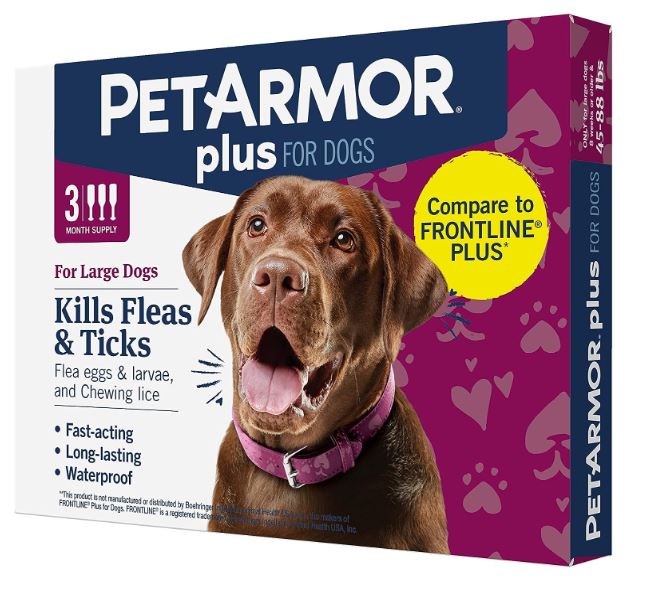Demystifying Dog Skin Conditions: Treating Itching and Irritation

Demystifying Dog Skin Conditions: Treating Itching and Irritation
-
Table of Contents
Introduction
Demystifying Dog Skin Conditions: Treating Itching and Irritation
Skin conditions in dogs can be a common and frustrating issue for pet owners. Itching and irritation can cause discomfort for your furry friend and may even lead to more serious health problems if left untreated. In this guide, we will explore the various causes of skin conditions in dogs, as well as effective treatments to help alleviate itching and irritation. By understanding the root cause of your dog’s skin issues and implementing proper care, you can help your pet live a happier and healthier life.
Preventing and Managing Dog Skin Conditions
Dog skin conditions can be a common issue that many pet owners face. From itching and irritation to more serious conditions like dermatitis and allergies, it’s important to understand how to prevent and manage these issues to keep your furry friend healthy and happy.
One of the most common signs of a skin condition in dogs is itching. If your dog is constantly scratching, licking, or biting at their skin, it could be a sign of an underlying issue. It’s important to pay attention to any changes in your dog’s behavior or appearance, as these can be early indicators of a skin problem.
There are many different causes of itching in dogs, including allergies, parasites, and infections. Allergies, in particular, can be a common culprit for skin irritation in dogs. Environmental allergens like pollen, dust, and mold can trigger allergic reactions in dogs, leading to itching and discomfort. Food allergies can also cause skin problems in dogs, so it’s important to pay attention to your dog’s diet and any changes in their skin condition.
Parasites like fleas, ticks, and mites can also cause itching and irritation in dogs. These pesky critters can burrow into your dog’s skin, causing discomfort and potentially leading to more serious skin conditions if left untreated. Regular grooming and flea prevention can help keep these parasites at bay and prevent skin issues in your dog.
Infections, both bacterial and fungal, can also cause itching and irritation in dogs. Bacterial infections like pyoderma can lead to red, inflamed skin and pustules, while fungal infections like ringworm can cause circular patches of hair loss and itching. If you suspect your dog has a skin infection, it’s important to consult with your veterinarian for proper diagnosis and treatment.
Treating itching and irritation in dogs often involves a combination of medication, grooming, and lifestyle changes. Your veterinarian may prescribe antihistamines or steroids to help alleviate itching and inflammation, as well as antibiotics or antifungal medications to treat infections. Regular grooming, including bathing with a gentle shampoo and brushing to remove dead skin and hair, can also help keep your dog’s skin healthy and prevent irritation.
In addition to medication and grooming, making lifestyle changes can also help prevent and manage skin conditions in dogs. Switching to a high-quality, hypoallergenic diet can help reduce the risk of food allergies and improve your dog’s overall skin health. Regular exercise and mental stimulation can also help reduce stress and anxiety, which can exacerbate skin conditions in dogs.
Overall, preventing and managing skin conditions in dogs requires a combination of vigilance, proper grooming, and veterinary care. By paying attention to your dog’s behavior and appearance, addressing any signs of itching or irritation promptly, and making lifestyle changes to support your dog’s skin health, you can help keep your furry friend comfortable and happy. If you suspect your dog has a skin condition, don’t hesitate to consult with your veterinarian for proper diagnosis and treatment. Your dog will thank you for it!
Treatment Options for Dog Skin Conditions
Dog skin conditions can be a frustrating and uncomfortable experience for both pets and their owners. Itching and irritation are common symptoms of various skin conditions that can affect dogs of all breeds and ages. Understanding the underlying causes of these skin issues is crucial in order to effectively treat and manage them. In this article, we will explore some common treatment options for dog skin conditions to help demystify the process and provide relief for your furry friend.
One of the first steps in treating itching and irritation in dogs is to identify the root cause of the problem. Allergies, parasites, infections, and underlying health issues can all contribute to skin conditions in dogs. Consulting with a veterinarian is essential in order to properly diagnose the issue and develop a treatment plan tailored to your dog’s specific needs.
Once the underlying cause of the skin condition has been identified, treatment options can vary depending on the severity of the symptoms. In cases of allergies, your veterinarian may recommend allergy testing to pinpoint the specific allergen triggering your dog’s symptoms. Avoiding the allergen, whether it be a certain food, pollen, or environmental factor, can help alleviate itching and irritation in your dog.
In cases where parasites such as fleas or mites are causing skin issues, your veterinarian may prescribe a topical or oral medication to eliminate the infestation. Regular grooming and flea prevention treatments can also help prevent future outbreaks and keep your dog’s skin healthy and itch-free.
Infections, whether bacterial or fungal, can also cause itching and irritation in dogs. Your veterinarian may prescribe antibiotics or antifungal medications to treat the infection and alleviate your dog’s symptoms. Keeping your dog’s skin clean and dry can also help prevent infections from recurring.
In some cases, underlying health issues such as hormonal imbalances or autoimmune disorders may be contributing to your dog’s skin condition. Your veterinarian may recommend blood tests or other diagnostic procedures to identify these issues and develop a treatment plan to manage them. Medications or dietary changes may be necessary to help control these underlying health issues and improve your dog’s skin health.
In addition to medical treatments, there are also some home remedies and lifestyle changes that can help alleviate itching and irritation in dogs. Regular baths with a gentle, hypoallergenic shampoo can help soothe irritated skin and remove allergens or irritants. Adding omega-3 fatty acids to your dog’s diet can also help improve skin health and reduce inflammation.
It is important to follow your veterinarian’s recommendations and treatment plan closely in order to effectively manage your dog’s skin condition. Monitoring your dog’s symptoms and keeping track of any changes can help you and your veterinarian determine the effectiveness of the treatment plan and make adjustments as needed.
In conclusion, treating itching and irritation in dogs requires a comprehensive approach that addresses the underlying cause of the skin condition. By working closely with your veterinarian and following their recommendations, you can help alleviate your dog’s symptoms and improve their overall skin health. With the right treatment plan in place, your furry friend can enjoy a happier, itch-free life.
Causes of Dog Skin Conditions

Dog skin conditions can be a frustrating and uncomfortable experience for both pets and their owners. From incessant itching to redness and irritation, these issues can significantly impact a dog’s quality of life. Understanding the causes of these skin conditions is crucial in order to effectively treat and manage them.
One of the most common causes of dog skin conditions is allergies. Just like humans, dogs can be allergic to a variety of substances, including pollen, dust mites, and certain foods. When a dog comes into contact with an allergen, their immune system can overreact, leading to symptoms such as itching, redness, and inflammation. Identifying and avoiding the allergen is key to managing these symptoms.
Another common cause of skin conditions in dogs is parasites. Fleas, ticks, and mites can all cause irritation and itching, leading to skin infections and discomfort for your pet. Regular grooming and preventative treatments can help keep these parasites at bay and reduce the risk of skin issues.
In some cases, underlying health conditions can also contribute to skin problems in dogs. Hormonal imbalances, autoimmune disorders, and infections can all manifest as skin issues, making it important to consult with a veterinarian for a proper diagnosis and treatment plan. Additionally, certain breeds are more prone to skin conditions due to genetic factors, so it’s important to be aware of your dog’s breed-specific health risks.
Environmental factors can also play a role in the development of skin conditions in dogs. Harsh weather conditions, exposure to chemicals, and poor grooming habits can all contribute to dry, irritated skin. Providing a clean and comfortable living environment for your dog, along with regular baths and grooming, can help prevent these issues from arising.
When it comes to treating itching and irritation in dogs, there are a variety of options available. Depending on the underlying cause of the skin condition, your veterinarian may recommend topical treatments, oral medications, or dietary changes to help alleviate symptoms. In some cases, allergy testing may be necessary to identify the specific allergen triggering your dog’s symptoms.
In addition to medical treatments, there are also some home remedies that can help soothe your dog’s irritated skin. Oatmeal baths, coconut oil, and aloe vera gel are all natural remedies that can help reduce itching and inflammation. However, it’s important to consult with your veterinarian before trying any home remedies to ensure they are safe and effective for your dog.
Preventing skin conditions in dogs is also important in maintaining their overall health and well-being. Regular grooming, flea and tick prevention, and a balanced diet can all help keep your dog’s skin healthy and free from irritation. Additionally, paying attention to any changes in your dog’s skin, such as redness, bumps, or excessive itching, can help catch potential issues early and prevent them from worsening.
In conclusion, understanding the causes of dog skin conditions is essential in order to effectively treat and manage them. By identifying the underlying cause of your dog’s itching and irritation, you can work with your veterinarian to develop a treatment plan that will help alleviate their symptoms and improve their quality of life. With proper care and attention, you can help keep your furry friend happy and healthy for years to come.
Identifying Symptoms of Itching and Irritation
Dogs are known for their playful and energetic nature, but sometimes they can suffer from skin conditions that cause itching and irritation. It is important for pet owners to be able to identify the symptoms of these conditions so that they can seek appropriate treatment for their furry friends.
One of the most common symptoms of itching and irritation in dogs is excessive scratching or licking. If you notice that your dog is constantly scratching at their skin or licking a particular area, it could be a sign that they are experiencing discomfort. In some cases, you may also see redness or inflammation on the affected skin.
Another symptom to look out for is hair loss or bald patches on your dog’s skin. This can be a result of excessive scratching or licking, which can damage the hair follicles and lead to hair loss. In severe cases, you may even see open sores or scabs on the skin, which can be painful for your dog.
It is also important to pay attention to any changes in your dog’s behavior. If they seem more irritable or restless than usual, it could be a sign that they are experiencing discomfort from a skin condition. Some dogs may also become more lethargic or lose their appetite if they are feeling unwell.
If you notice any of these symptoms in your dog, it is important to consult with your veterinarian as soon as possible. They will be able to examine your dog and determine the underlying cause of the itching and irritation. In some cases, they may recommend a skin scraping or biopsy to further investigate the issue.
Once the cause of the itching and irritation has been identified, your veterinarian will be able to recommend a treatment plan for your dog. This may include medications such as antihistamines or corticosteroids to help reduce inflammation and itching. They may also recommend topical treatments such as medicated shampoos or creams to soothe the skin.
In some cases, dietary changes may also be necessary to help manage your dog’s skin condition. Certain food allergies or sensitivities can contribute to itching and irritation, so your veterinarian may recommend a hypoallergenic diet for your dog. They may also recommend supplements such as omega-3 fatty acids to help improve the health of your dog’s skin and coat.
It is important to follow your veterinarian’s recommendations closely and monitor your dog’s progress throughout the treatment process. It may take some time for your dog’s skin condition to improve, so patience is key. In some cases, your veterinarian may need to adjust the treatment plan based on your dog’s response to the medications or other interventions.
By being proactive in identifying and treating itching and irritation in your dog, you can help them feel more comfortable and improve their overall quality of life. Remember to consult with your veterinarian if you notice any symptoms of skin conditions in your dog, and follow their recommendations for treatment. With proper care and attention, you can help your furry friend feel better in no time.
Understanding Common Dog Skin Conditions
Dogs are known for their playful and energetic nature, but sometimes they can suffer from skin conditions that cause itching and irritation. These conditions can be uncomfortable for your furry friend and may require treatment to alleviate their symptoms. Understanding common dog skin conditions can help you identify the problem and seek appropriate care for your pet.
One of the most common skin conditions in dogs is allergic dermatitis. This condition occurs when a dog’s immune system overreacts to allergens such as pollen, dust mites, or certain foods. Allergic dermatitis can cause itching, redness, and inflammation of the skin, leading to discomfort for your pet. Treatment for allergic dermatitis may include antihistamines, corticosteroids, or allergy shots to help manage your dog’s symptoms.
Another common skin condition in dogs is flea allergy dermatitis. Flea allergy dermatitis occurs when a dog is allergic to the saliva of fleas, leading to intense itching and irritation. Even a single flea bite can trigger a reaction in sensitive dogs, causing them to scratch and bite at their skin. Treatment for flea allergy dermatitis involves eliminating fleas from your dog’s environment and using flea prevention products to protect your pet from future infestations.
Bacterial and fungal infections can also cause skin problems in dogs. Bacterial infections, such as pyoderma, can lead to red, inflamed skin with pustules or crusts. Fungal infections, such as ringworm, can cause circular patches of hair loss and scaly skin. Treatment for bacterial and fungal infections may include antibiotics, antifungal medications, or medicated shampoos to help clear up the infection and promote healing.
Parasites such as mites and ticks can also cause skin irritation in dogs. Sarcoptic mange, caused by microscopic mites, can lead to intense itching, hair loss, and crusting of the skin. Ticks can transmit diseases such as Lyme disease and cause skin irritation at the site of attachment. Treatment for parasitic skin conditions may involve topical or oral medications to eliminate the parasites and relieve your dog’s symptoms.
In some cases, hormonal imbalances can contribute to skin problems in dogs. Hypothyroidism, for example, can lead to dry, flaky skin and hair loss in dogs. Cushing’s disease, a condition caused by excess cortisol production, can cause thinning skin and poor wound healing. Treatment for hormonal skin conditions may involve medication to regulate hormone levels and improve your dog’s skin health.
It is important to consult with your veterinarian if you suspect that your dog is suffering from a skin condition. Your vet can perform a physical exam, skin scraping, or blood tests to diagnose the problem and recommend appropriate treatment. In some cases, your vet may refer you to a veterinary dermatologist for further evaluation and care.
By understanding common dog skin conditions and seeking prompt treatment for your pet, you can help alleviate their itching and irritation and improve their overall quality of life. With proper care and management, you can keep your furry friend happy, healthy, and comfortable for years to come.
Conclusion
In conclusion, understanding and treating dog skin conditions such as itching and irritation can greatly improve the quality of life for our furry friends. By demystifying these conditions and seeking proper treatment, we can help alleviate discomfort and promote overall health and well-being in our beloved pets.



